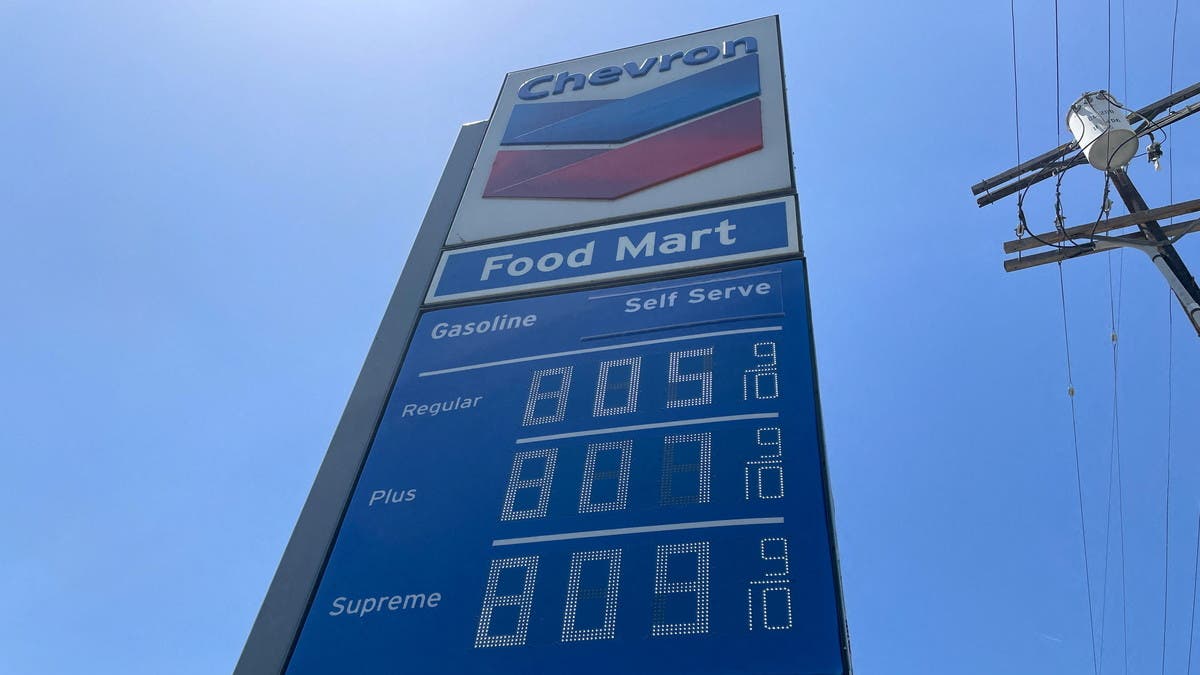The cost of gas, food and most other goods and services jumped in May, pushing inflation to a four-decade high and offering Americans no respite.
Consumer prices surged 8.6 percent last month from a year earlier, faster than April’s year-over-year increase of 8.3 percent, the Labor Department said Friday. The new inflation figure, the biggest increase since December 1981, heightens pressure on the Federal Reserve to continue raising interest rates aggressively.
For the latest headlines, follow our Google News channel online or via the app.
On a month-to-month basis, prices jumped one percent in May, much faster than April's 0.3 percent rise. So-called “core” inflation, a measure that excludes volatile food and energy prices, climbed 0.6 percent for a second straight month and are now 6 percent above where they were a year ago.
Friday's report underscored fears that inflation is spreading beyond energy and goods whose prices are being driven higher by clogged supply chains and Russia's invasion of Ukraine. If the Fed becomes more aggressive in combating inflation with rate hikes, it will mean higher-cost loans for families and businesses, and raises the risk of recession.
“Virtually every sector has higher-than-normal inflation,” said Ethan Harris, head of global economic research at Bank of America. “It's made its way into every nook and cranny of the economy. That's the thing that makes it concerning, because it means it's likely to persist.”
Gas prices rose 4 percent just in May and have soared nearly 50 percent in one year. The national average price at the pump reached $4.99 Friday, according to AAA, edging closer to an inflation-adjusted record high of $5.40.
Grocery costs surged nearly 12 percent from a year earlier, the biggest such increase since 1979. Rising prices for grain and fertilizer in the wake of the Ukraine invasion, is intensifying that rise. Restaurant prices jumped 7.4 percent in the past year, the largest 12-month gain since 1981. Owners are also facing immense pressure to raise wages in a heated job market.
Housing costs are still climbing. The government's shelter index, which includes rents, hotel rates and a measure of what it costs to own a home, increased 5.5 percent in the past year, the most since 1991. Airline fares are up nearly 38 percent in the past year, the sharpest such rise since 1980.
Rampant inflation is imposing severe pressures on families. Lower-income and Black and Hispanic Americans in particular are struggling because, on average, a larger proportion of their income is consumed by necessities.
There have been signs inflation might be moderating, particularly for goods caught up in supply chain snarls and shortages. That trend appeared to reverse in May, with used car prices rising 1.8 percent after falling for three straight months. New car prices also rose. Clothing costs also reversed course, and rose in May.
In light of Friday's inflation reading, the Fed is all but certain to carry out the fastest series of interest rate hikes in three decades. By sharply raising borrowing costs, the Fed hopes to cool spending and growth enough to curb inflation without tipping the economy into a recession. For the central bank, it will be a difficult balancing act.
Fed Chair Jerome Powell has signaled that the Fed will double the size of a typical hike next week, and again in July, meaning half-point jumps. Some had held out hope that the Fed would then dial back rate increases in September, or even pause its credit tightening.
But with inflation raging, economists increasingly expect a third half-point hike in the fall, which would be its fourth since April.
Surveys show that Americans see high inflation as the nation’s top problem, and most disapprove of President Joe Biden’s handling of the economy. Congressional Republicans are hammering Democrats on the issue in the run-up to midterm elections this fall.
Read more:
Russian ruble firms ahead of expected interest rate cut
IMF likely to cut global growth estimate as conditions deteriorate: Official
Egypt urban inflation quickens 13.5 pct in May on food, devaluation


 World3 years ago
World3 years ago
 World3 years ago
World3 years ago
 Business11 months ago
Business11 months ago
 Entertainment7 years ago
Entertainment7 years ago
 World7 years ago
World7 years ago
 Entertainment7 years ago
Entertainment7 years ago




